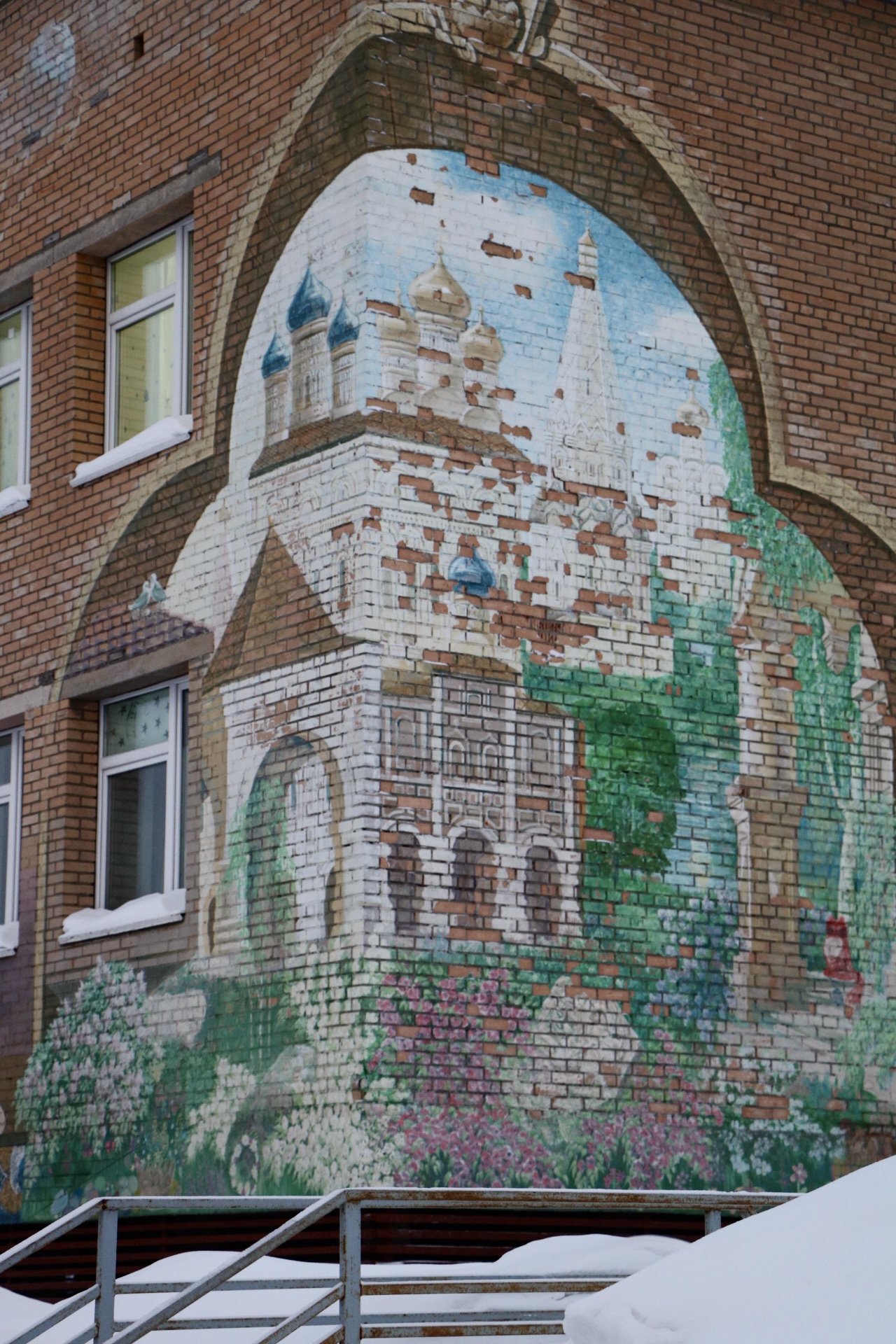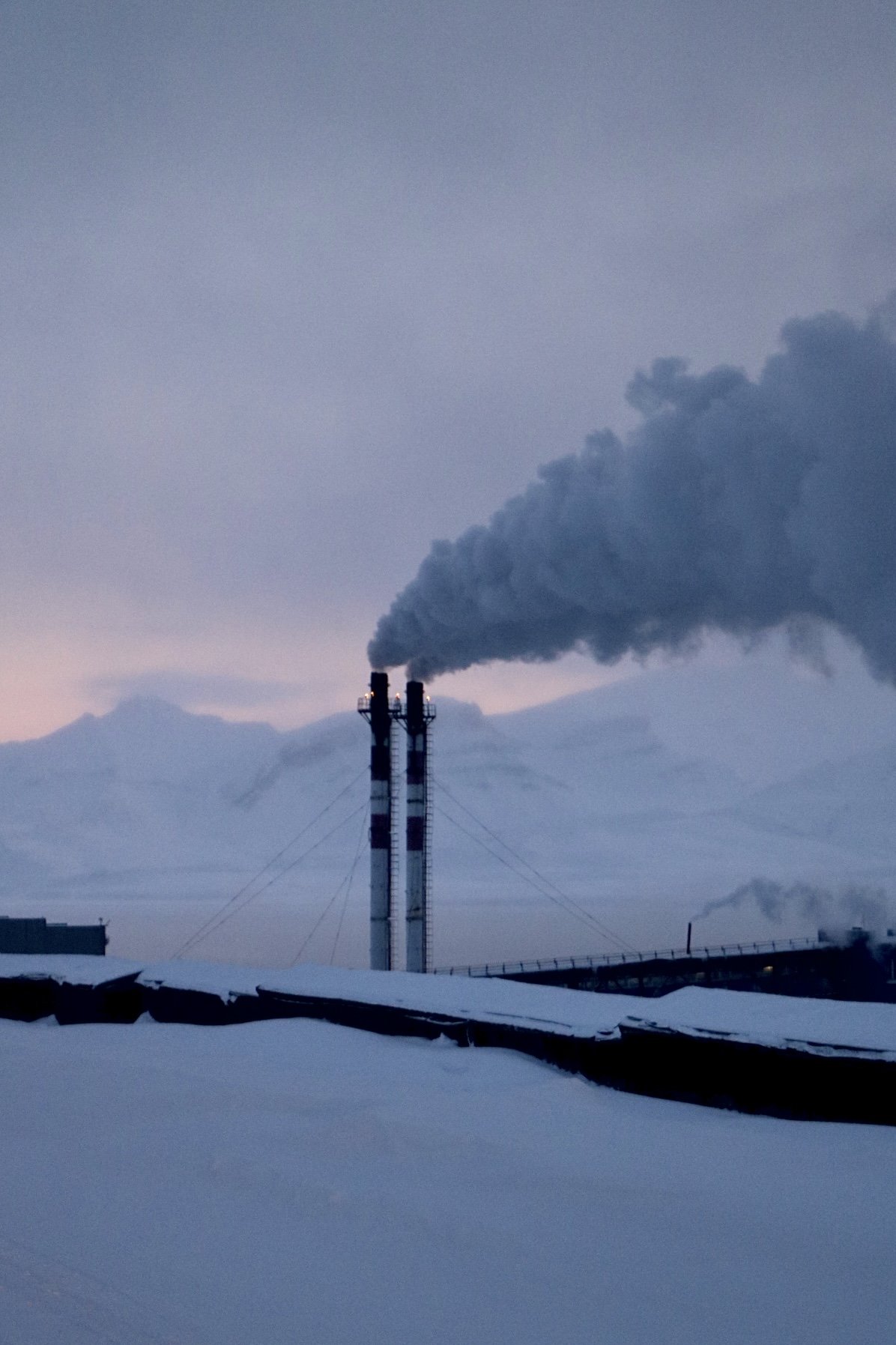Russian Tensions Heat Up the Arctic
Photo: Abigail Mason
February 24, 2022
A dense smog sat over the silent town. As we drove our snowmobiles up to Hotel Barentsburg, I glanced around at the Soviet-era, brutalist buildings peeking out from the snow covered cliffside. The deep reds and blues of the buildings added some welcomed color to the grey and white surroundings. Catching a glimpse of the towering snow-covered bust of Lenin outside the towns housing blocs, I was immediately transported back in time.
It took 5 hours by snowmobile to reach this Russian-state governed coal mining town at the top of the world. Barentsburg is the second largest town on Svalbard, a Norwegian Archipelago that sits between mainland Norway and the North Pole. With a population of just 300, Barentsburg is considerably less inhabited than Longyearbyen (pop. 2,368), the only other inhabited town on the island.
As we walked past the Russian consulate, our guide, a young, burly Swedish expat named Björn, told us that the town, although part of Norway, is run by the Russian state-owned mining company Arktikugol and inhabited by Ukrainian workers.
The tour was brief, and we willingly took shelter from the -25°F wind gusts to eat lunch in the dining room of the one hotel in town. As we sat down for a traditional Russian meal of egg salad and fish cakes, my phone buzzed with a BBC notification:
"Russia launches Ukraine invasion".
I glanced over at the dining room servers, dressed in clinical, 50s era blue nurse uniforms, not knowing which of them were Russian or Ukrainian. No one mentioned what had happened.
At the time, I didn't know what this news would mean for this isolated Arctic town that had seemingly never left the Soviet Era. I didn't know that my visit would be one of the last made by tourists for the coming years. I didn't know that I was in, what would become, a strategically crucial town for Russia's aggressive campaign.
The Arctic territory of Svalbard, as stipulated in the Svalbard Treaty of 1920, is a demilitarized archipelago that offers citizens of the treaty’s signatories a visa-free place to move and work. Although the treaty recognizes the sovereignty of Norway over the territory, the signatories are granted equal rights to carry out commercial activities. Countries such as France, Japan, the United Kingdom, the United States, and Sweden are all signatories, however, only Norway and Russia are currently exacting their right to carry out these activities.
Russia's continued mining activities on Svalbard are strategic. Securing Russian control of the Arctic Ocean is a critical defense strategy due to Russia's extensive northern, Arctic coastline. Presence in Svalbard offers Russia the ability to regulate control of these waters. Since Russia's invasion of Ukraine, their naval presence in the waters surrounding Svalbard has increased.
As a result of the treaty, Arktikugol possesses 251 square kilometers of land on the island, making it "the only place where Russia and its predecessor the Soviet Union have coexisted on the same territory with a NATO-member country.” Due to the EU's 5th package of sanctions, Norway's seaports are closed to Russian cargo ships. Barentsburg's residents have been cut off from their already minimal food supply. All Norwegian tour companies have stopped tours to Barentsburg, eliminating a huge part of the town's income. It is a complex issue. Should these Ukrainian coal miners be punished for the connections of their employer to the Kremlin?
Understandably, this has led to increased tensions amongst Barentsburg's residents, only heightened by Sergey Gushchin, the Russian consul general's, support of Putin. As we've seen, Russia has taken an aggressive approach towards Ukraine. They have already, throughout the past century, made claims of sovereignty in Svalbard. Svalbard is strategically located, and in the eyes of the Kremlin, a Russian territory. So what's stopping Putin from launching his campaign in the Arctic?
On this small Arctic island of few residents, we see the complexity of the last century of global Russian relations. Soviet-Era tensions have once again risen to the surface causing unrest in a region where, historically, the harsh nature of life has made peaceful coexistence a necessity for survival.
Days later, back in Longyearbyen, my cab driver, a gruff Finnish man, starts to discuss the recent invasion. "If you hear on the news that the consul general in Barentsburg has been murdered, just know that it was me." The sincerity in his voice is chilling.
I've checked the news every day since.



